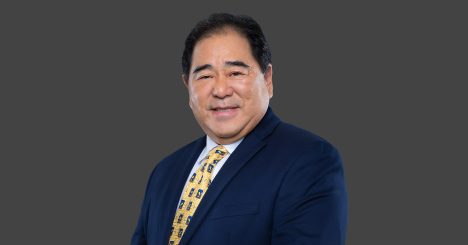Pacific Business News (PBN) released its annual list of the top Labor and Employment Law Firms in Hawai‘i, and Cades Schutte LLP was proud to once again place first in terms of number of attorneys. Paul M. Saito, partner in the firm’s Employment Law & Labor Relations team, answered some questions for PBN in conjunction with the release of the report. His answers are below:
How is your firm dealing with artificial intelligence programs, both as a tool and a legal issue?
Artificial Intelligence has been a topic many of our clients and attorneys have inquired about and many states, including Hawai‘i, have issued orders and guidance associated with AI in the legal practice. For example, in Hawai‘i, Judge Leslie Kobayashi of the U.S. District Court for the District of Hawai‘i, recently issued an order that requires the disclosure of the use of AI in drafting any legal documents. This was followed by General Order 23-1, requiring any counsel or pro se party using AI or non-specific compensated sources for filings to submit a declaration titled “Reliance on Unverified Source,” that discloses the reliance on unverified sources, and verifies that any such material is not fictitious. Cades Schutte’s Intellectual Property and Technology partner Martin E. Hsia has been monitoring the situation and written articles and given presentations on the subject, and we are monitoring the current situation, which is changing every day.
What are you hearing most from your clients?
- Clients have been calling about changes to the new federal Pregnant Worker’s Fairness Act, and the Governor’s executive order requiring Project Labor Agreements for Maui County restoration jobs, and Mayor [Rick] Blangiardi’s requirement for use of Project Labor Agreements on City projects over $250,000. We have also assisted clients with a number of bid protests/challenges.
- Since the FTC’s recent ban on non-compete agreements, which will take effect on Sept. 4, we have been reaching out to clients regarding the meaning of the ruling, as we are receiving inquiries from clients.
- Separately, Governor [Josh] Green signed the Hawai‘i Project Labor Agreement, aiding the recruitment of local workers while preventing labor disruptions or hiring out-of-state workers, to secure a steady supply of labor to rebuild Lahaina and support affordable housing projects. The PLA, combined with the recent City & County of Honolulu’s use of Community Work Agreements, are expected to lead to bid protests or challenges that would impact our clients. We similarly have been receiving calls recently from non-union contractors. Employers should be ready to consult with an attorney in such instances.
- Federal overtime rules took effect on July 1, now making the salary threshold $43,888, previously $35,568, for employers to opt-out of paying their salaried, white-collar employees “time and a half” for overtime hours worked. On Jan. 1, 2025, the figure jumps to $58,656. Employers will need to budget and plan ahead for this new expected cost for labor.
Since the enactment of Act 203 on Jan. 1, how has it affected business clients?
Act 203, or Hawai‘i’s Pay Transparency and Equal Pay law, amended HRS Chapter 378 to require employers with 50 or more employees to advise applicants for jobs with a pay or salary range, and expands equal pay protections.
Click here for the full report and PBN’s feature of Hawai‘i’s top labor and employment law firms.





